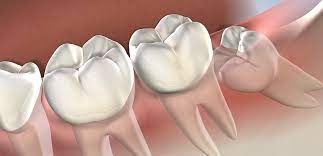Tooth extraction, whether due to severe decay, trauma, or orthodontic needs, is a common dental procedure. Tooth Removal Clinic Dubai is to alleviate pain, prevent infection, or address dental misalignment, understanding the long-term effects on your dental health is crucial. This guide explores how tooth extraction can impact your oral health over time and what measures you can take to mitigate potential issues.
1. Impact on Adjacent Teeth
Shifting of Teeth: When a tooth is extracted, the surrounding teeth may begin to shift into the empty space. This shifting can lead to misalignment and bite issues, affecting your overall dental function.
Wear and Tear: The remaining teeth may experience increased stress and wear as they compensate for the missing tooth, potentially leading to further dental problems over time.
Preventive Measures:
- Dental Implants: Replacing the extracted tooth with a dental implant can prevent adjacent teeth from shifting and maintain proper alignment.
- Dental Bridges: Bridges can also restore the missing tooth and support the alignment of surrounding teeth.
2. Bone Loss and Changes in Jawbone Structure
Bone Resorption: After a tooth extraction, the jawbone where the tooth was rooted begins to undergo resorption, a process where the bone gradually loses density and volume. This bone loss can affect the stability of adjacent teeth and the overall structure of the jaw.
Aesthetic Concerns: Bone loss can lead to changes in facial appearance, including a sunken or hollow look, which may affect your smile and self-esteem.
Preventive Measures:
- Bone Grafting: A bone graft can be performed at the time of extraction or later to preserve bone structure and prevent significant resorption.
- Dental Implants: Implants stimulate the jawbone similarly to natural teeth, helping to maintain bone density and structure.
3. Impact on Bite and Occlusion
Altered Bite: The absence of a tooth can lead to changes in your bite, as the opposing teeth may move or shift. This alteration can cause uneven pressure on the remaining teeth and lead to discomfort or functional problems.
Temporomandibular Joint (TMJ) Issues: Changes in bite and alignment can strain the TMJ, leading to pain, clicking, or difficulty in jaw movement.
Preventive Measures:
- Orthodontic Treatment: Braces or clear aligners can help correct bite issues and realign the teeth following an extraction.
- Regular Check-ups: Regular dental visits can help monitor and address any bite changes early on.
4. Impact on Oral Hygiene
Difficulty Cleaning: The space left by an extraction can make it harder to clean thoroughly, increasing the risk of plaque buildup and potential dental issues such as gum disease or cavities in adjacent teeth.
Changes in Oral Hygiene Routine: You may need to adjust your oral hygiene routine to ensure the extraction site and remaining teeth are properly cared for.
Preventive Measures:
- Good Oral Hygiene: Maintain a rigorous oral hygiene routine, including brushing twice daily, flossing, and using an antibacterial mouthwash.
- Professional Cleanings: Schedule regular dental cleanings to ensure thorough removal of plaque and tartar.
5. Psychological and Aesthetic Effects
Self-Esteem Issues: The visible gap left by an extraction, particularly in the front of the mouth, can affect your self-esteem and confidence.
Speech Changes: Missing front teeth can impact your ability to speak clearly, which may affect your social interactions and confidence.
Preventive Measures:
- Cosmetic Solutions: Consider cosmetic options such as dental implants, bridges, or dentures to restore your smile and improve confidence.
- Speech Therapy: If speech changes occur, working with a speech therapist can help address and improve any speech issues.
6. Impact on Eating and Nutrition
Chewing Difficulties: Missing teeth can affect your ability to chew efficiently, leading to difficulties in eating certain foods and potential nutritional deficiencies.
Altered Eating Habits: To compensate for missing teeth, you might avoid certain foods, which can impact your overall diet and nutrition.
Preventive Measures:
- Restorative Treatments: Restorative options like implants or bridges can improve chewing function and allow you to eat a balanced diet.
- Dietary Adjustments: Choose softer foods that are easier to chew and consider nutritional supplements if necessary.
7. Long-Term Maintenance and Follow-Up Care
Ongoing Monitoring: After a tooth extraction, it's essential to monitor the area for any long-term effects, such as bone loss or alignment issues, and to address these promptly with your dentist.
Regular Check-ups: Routine dental visits are crucial for assessing the health of your remaining teeth, jawbone, and overall oral hygiene.
Preventive Measures:
- Consistent Follow-up: Keep up with regular dental appointments to address any issues early and maintain your overall oral health.
- Customized Care: Your dentist may provide personalized recommendations for maintaining oral health based on your specific situation.
FAQs
1. What should I expect immediately after a tooth extraction?
You may experience swelling, discomfort, and minor bleeding right after the procedure. These symptoms are usually manageable with prescribed pain relievers, ice packs, and following your dentist’s care instructions.
2. How long does it take for the extraction site to heal?
Initial healing typically takes about 1-2 weeks, but complete bone and gum healing can take several months. Your dentist will monitor the healing process during follow-up visits.
3. Can I prevent bone loss after a tooth extraction?
Yes, procedures like bone grafting and dental implants can help prevent significant bone loss and maintain the structure of your jawbone.
4. How can I prevent my remaining teeth from shifting after an extraction?
Replacing the missing tooth with a dental implant or bridge can help maintain the alignment of surrounding teeth and prevent shifting.
5. What are the best options for replacing a missing tooth?
Dental implants, bridges, and dentures are common options for replacing missing teeth. Your dentist can recommend the best solution based on your specific needs and oral health.





Comments